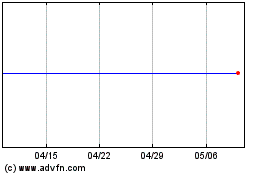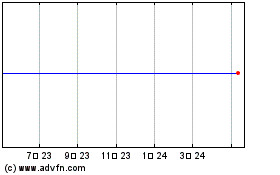Facebook Battles New Criticism After U.S. Indictment Against Russians
2018年2月20日 - 4:17AM
Dow Jones News
By Georgia Wells
Facebook Inc. is contending with a new wave of criticism
prompted by the U.S. indictment detailing how Russia manipulated
social-media platforms -- and by a Facebook executive's attempts to
address the issue.
The indictment on Friday against Russian companies and
individuals described how an organization called the Internet
Research Agency systematically used Facebook, Twitter Inc., and the
YouTube arm of Alphabet Inc.'s Google to sow discord in the U.S.
starting in 2014. The document's description of events showed that
Facebook and its Instagram photo-sharing unit were particularly
central to the alleged Russian attempts to influence U.S. public
opinion.
The indictment renewed scrutiny of Facebook's role in the Russia
influence campaign, with researchers who study social media saying
it demonstrated that the company was ill-prepared for such
efforts.
Comments by Facebook's head of advertising, Rob Goldman, after
the indictment was handed down fueled further criticism. Mr.
Goldman, writing on Twitter, said there are "easy ways to fight"
the Russian campaign, starting with having a "well educated
citizenry." He also said the Russian's main goal wasn't to sway the
2016 election, but more broadly to sow division in the U.S.
Mr. Goldman's series of eight tweets provoked a backlash, with
more than 9,000 responses, many of them angry -- an unusual level
of engagement for an account with fewer than 10,000 followers.
"You really are not in a position to preach and your astonishing
tweets have created confusion and anger," Mainardo de Nardis, a
senior executive at advertising giant Omnicom Group Inc., said in a
tweet Sunday. "Enough damage done over the past 2+ years. In the
absence of real actions silence would be appreciated." Mr. de
Nardis didn't respond to requests for comment.
Mr. Goldman didn't respond to a request for comment. A Facebook
spokesman said Mr. Goldman had sent his tweets in a personal
capacity. The company pointed to a statement from Joel Kaplan,
Facebook's vice president of global public policy, saying "Nothing
we found contradicts the Special Counsel's indictments."
Russia's government has repeatedly denied any government effort
to influence the U.S. election.
Facebook has struggled for much of the past year to respond to
mounting ire from users, politicians, customers and others over its
role in facilitating the spread of misinformation and divisive
content.
While Facebook's role in the Russian campaign is in the
spotlight, some researchers who have studied the efforts note that
it was far from the only institution to fall short. "Let's not
mince words. The Obama administration did not react quickly enough
to this problem. The intelligence community did not react quickly
enough to this problem," said Thomas Rid, professor of strategic
studies at Johns Hopkins University.
Facebook has said it is taking a number of steps to prevent
efforts like the Russian campaign from happening again, including
hiring 10,000 new employees tasked with policing hate speech, as
well as coming up with ways to uproot fake accounts. Facebook
officials also have emphasized that the company provided
information to special counsel Robert Mueller, who secured Friday's
indictment as part of his investigation into whether Russia meddled
in the 2016 campaign.
Mr. Goldman, too, emphasized that Facebook is taking "aggressive
steps to prevent this sort of meddling in the future," including
verification for all political advertisers.
Still, his comments struck some observers as tone deaf.
"It was an almost perfect example of Silicon Valley
overconfidence and lack of sophistication when it comes to
politics," said Josh Hendler, former director of technology for the
Democratic National Committee, which suffered a cyberattack ahead
of the 2016 election that U.S. officials blamed on Russia. "The
tweets hit such a chord," said Mr. Hendler, who is now chief
technologist of Purpose, a consulting firm focused on growing
social movements.
The comments also fueled disagreement about the intent of the
Russian efforts. One of Mr. Goldman's tweets said "swaying the
election was *NOT* the main goal" of the Russian ads, and that "the
majority of the Russian ad spend happened AFTER the election."
On Saturday, President Donald Trump cited Mr. Goldman's comment
in support of the idea that Russia's actions didn't affect the
election.
Following criticism that he was obscuring the intent of the
Russians, Mr. Goldman later tweeted that "the Russian campaign was
certainly in favor of Mr. Trump." He also dialed back some of his
claims. "I am only speaking here about the Russian behavior on
Facebook. That is the only aspect that I observed directly," he
tweeted.
--Robert McMillan contributed to this article.
Write to Georgia Wells at Georgia.Wells@wsj.com
(END) Dow Jones Newswires
February 19, 2018 14:02 ET (19:02 GMT)
Copyright (c) 2018 Dow Jones & Company, Inc.
Twitter (NYSE:TWTR)
過去 株価チャート
から 3 2024 まで 4 2024

Twitter (NYSE:TWTR)
過去 株価チャート
から 4 2023 まで 4 2024
